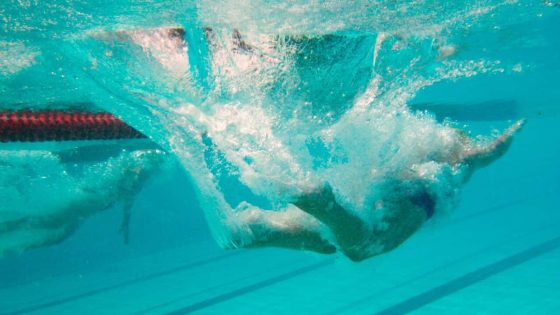Key Points
- NSW and Queensland have recorded 498 and 823 cases of cryptosporidiosis, respectively, in the past six weeks.
- The disease is caused by the cryptosporidium parasite, which can survive in chlorinated water for days.
- Symptoms include watery diarrhoea, stomach cramps, fever, nausea and vomiting.
Health officials in Queensland and New South Wales are urging people with diarrhoea to avoid swimming pools, as the states record hundreds of individuals contracting an infectious disease caused by an intestinal parasite.
Cryptosporidiosis, a diarrhoeal disease — symptoms of which include watery stools, stomach cramps, fever, nausea and vomiting — is caused when a person comes into contact with the cryptosporidium parasite, which can survive in chlorinated water for days.
In the first six weeks of 2024, the parasite has been responsible for 498 cases of diarrhoea in NSW — more than five times the five-year average for the same period.
In Queensland, 736 cases were recorded in the first month of the year, a 13-fold increase on January 2023’s numbers. There have been 823 infections recorded since the start of the year.
Children, who are particularly susceptible to contracting and spreading the virus, have accounted for almost half the cases in both states. Experts are urging parents to remain vigilant.
“The parasite survives for many days, even in chlorinated pools and in the past very large outbreaks have been caused by people who had recently been infected going swimming,” Dr Jeremy McAnulty, executive director of health protection at NSW Health, told the media.
“Almost half of the cases reported this year had been swimming during their exposure period, and with such a high proportion of young children affected and with many schools about to hold swimming carnivals, we’re urging parents to stay alert for symptoms.”
Symptoms could last from weeks to months
Symptoms of cryptosporidiosis generally start two to 10 days after becoming infected with the parasite, and usually last about one to two weeks.
Some people will have no symptoms at all, while those with a weakened immune system may experience more severe symptoms that could last for months.
Health authorities have urged people to contact their doctor if they develop symptoms.
“Effective hand hygiene and things like that are the foremost way of preventing the disease,” Dr Rezanur Rahaman, a medical doctor with specialist training in field epidemiology, international public health and health management, told SBS News.
For those who have contracted it, he added, the main risk is dehydration.
Rahaman noted it’s “quite uncommon” to see a predispositions outbreak of this scale, explaining that these usually occur from “common-source outbreaks” caused by contaminated food at a party or event. Another possibility, he suggested, is the contamination of water supply.
“It’s pretty uncommon in our community, but that is certainly a possibility for causing an outbreak of that magnitude,” he said.
Authorities are warning those who have had diarrhoea to avoid swimming and sharing towels for at least two weeks after symptoms resolve, and to avoid handling food for 48 hours.
People are further advised to avoid swimming in estuaries and inland waterways during heavy rain and for three days afterwards, or one day for ocean beaches.




